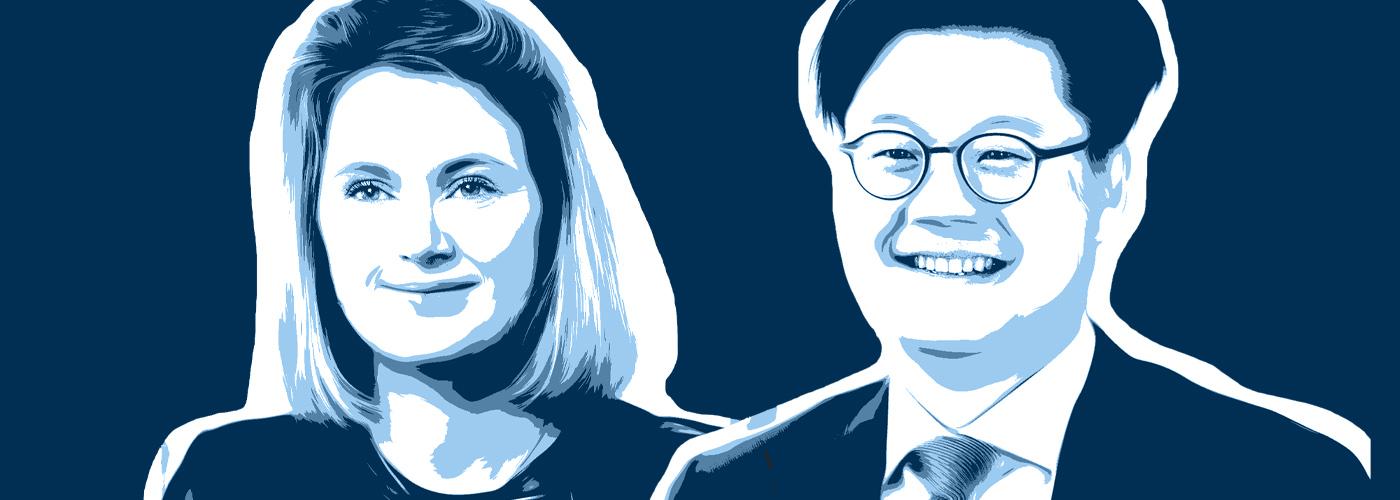
Despite tough inflationary times, there is still demand for brand name products, but real concerns about ESG considerations among consumers on both sides of the Atlantic are putting new pressure on companies to live up to expectations. Amandine Ayrem and David Choi look at how private equity firms can work with their portfolio companies to navigate the new demands.
Brands’ social and environmental responsibility: illusion or reality?
As inflation bites in varying degrees on each side of the Atlantic, investors looking for brand name companies need to take account of the different ways that consumers are adapting to tough times.
The driving idea behind consumer growth investing has long been to identify quality brands and products that consumers want to be associated with and for which they are willing to make an extra effort. The notion that people might pay a bit more for a product with which they have some sense of connection – and which they enjoy seeing, touching, tasting, and feeling – has long driven a trend toward premiumization.
Today’s inflationary pressures haven’t halted that trend, but recent experience shows us that it is taking different forms in different markets. In the US market, for example, we even see cases of premiumization reaching into some lower price-tag “everyday” items, such as beverage mixers or pet food. Although higher energy and food prices eat into consumers’ discretionary spend, some are willing to preserve or even marginally increase their outlay on some smaller, but still upmarket, items, thereby offering themselves a modest and permissible luxury in tougher times.
The focus for investors in those companies remains the same: identifying growing brands that can continue to successfully differentiate themselves, for example through quality and traceability of product, an authentic back-story, or conveniently available where the consumer is already shopping. Those products are likely to be the ones that can boast of a certain “inelasticity”, meaning that demand is not significantly affected by a change in price, or even a “positive price-elasticity”, like in the luxury sector, with an increase in price resulting in a higher demand.
In Europe, the combined pressure of higher prices for food and energy is weighing even more heavily on consumers, forcing many households to make some tough choices as they review their discretionary spending patterns. The impact of this situation shows up in some telling details as, for example, Netflix struggling for the first time and massively loosing subscribers. Even more telling, the post-Covid surge of demand for “organic” and “authentic” foods and products has recently fallen off sharply, a glaring contradiction to people’s continued expressions of concern for the environment, responsible sourcing, and good governance.
This almost schizophrenic state-of-mind among European consumers is in fact quite understandable. The visible, everyday impact of climate change has raised concerns among many, especially the young, about the state of the world they are living in. European consumers tend to take a relatively sophisticated view of the world and are often ahead of the regulators in terms of their purchasing behavior. However, when times get tough and reality is challenging, they are more reluctant to pay for the cost of environmental-friendly, responsible production and packaging. Tangible measures to match ESG requirements - such as introducing traceability, carbon neutrality or plastic-free packaging - all have a cost, but end-consumers don’t necessarily want to see that cost pushed down the line for them to pick up.
European consumers demanding a greater social role from corporates
This difficulty and resistance by consumers to shoulder the costs of corporate responsibility is an important reason behind the recent shift we have witnessed in European consumers’ ESG concerns.
For a long time, European ESG concerns focused on the E-for-environment. Today the S-for-social is rising in importance too: consumers are coming from health, post Covid lockdowns, to wealth worries. Recent trends show that European consumers are becoming more critical of corporations’ behavior on issues that were previously predominantly seen as the concerns of politicians, such as profit-sharing, salaries, reshoring and sovereignty. Brands are increasingly expected to take over in solving societal issues.
For investors in European brands, this broader consumer focus on corporate social responsibility means they need to factor in the cost of integrating ESG criteria as essential transversal elements of any company’s business plan. This will in turn impact a buyout fund’s investment thesis, knowing that there is a cost in deploying ESG which cannot be entirely passed onto the end-customer, but which is fundamental to sustain, and even increase, the value of a company over the time.
This newly contradictory approach as to who should pay to maintain standards can also help answer the question for European brand investors of where they should be seeking value. The answer is likely to focus on the edges of the value spectrum and to avoid the middle ground. On one end of the scale, the wealthy classes who feel more insulated from the effects of inflation will continue to spend on luxury items. At the other end of the scale, cheaper “value” options will attract a growing number of the middle-income consumers as they find themselves forced to trade down.
US consumers saying one thing, buying another
Like their European counterparts, US consumers are also displaying a degree of split-personality when it comes to ESG concerns, often holding opinions in direct contradiction to their purchasing patterns. For example, surveys show that young consumers often express real concerns about product quality, responsible sourcing, and transparency in the supply chain but will then buy cheaper items they can find online.
Despite sharing concerns about saving money in tough times, US consumers differ in one important way from their European counterparts in their attitudes to ESG. In the US, the most visible element of consumer-driven ESG focus continues to be diversity and inclusion, which – although growing – remains much less prominent a factor in Europe.
This means that US investors looking for opportunities among consumer companies must take this powerful D&I awareness into account, looking not just for brands that have mastered the “omnichannel” trends in retail sales, but which also reflect consumers’ own sense and respect for differentiation.
Those differences notwithstanding, as today’s troubled environment puts new pressures on consumers everywhere, investors on both sides of the Atlantic need to keep their eye on certain tried-&-true management principles as they help steer their portfolio companies to profitable growth. An experienced and responsible but nimble management team that is focused on customers’ needs and journey, quality, innovation and increased productivity will, as always, prove to be the most important factor in building resilient brands that consumers will continue to trust and to buy.




































